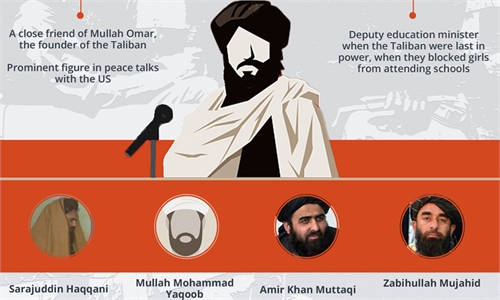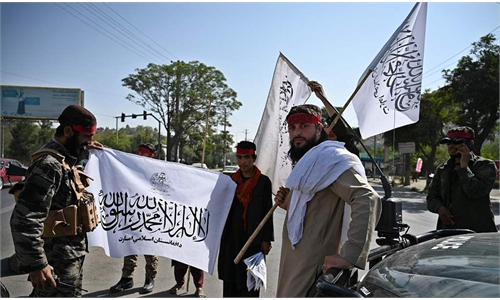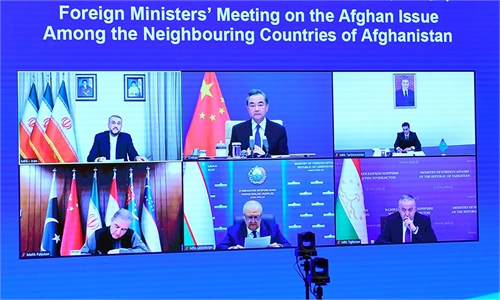IN-DEPTH / IN-DEPTH
UNICEF calls on intl donors not to abandon Afghan women, children at critical time
Video: GT
After the irresponsible and hasty withdrawal of the US and its allies, Afghanistan, dogged by two decades of turmoil and conflict, still faces a number of serious humanitarian challenges. As epidemics, drought, famine, and economic sanctions ravage the country at a critical time in Afghanistan's post-war reconstruction, several aid organizations are ramping up their efforts and calling on all parties to work together to improve the situation of women, children, and other vulnerable groups in Afghanistan.According to UNICEF, currently nearly half the Afghan population - around 18 million people and an estimated 10 million children are in urgent need of support. "We are not dealing with one deprivation but with multiple challenges that are interlaced and multifaceted," Samantha Mort, communications chief in Kabul for the United Nations Children's Fund (UNICEF) told the Global Times.
In the interview, Mort called on the international community to take immediate action to help the Afghan people, saying that she was distressed that some international donors refused to continue with aid programs, which further exacerbates the plight of Afghans. However, she pointed out that China's timely humanitarian assistance to Afghanistan will effectively complement the support received from other donor countries.
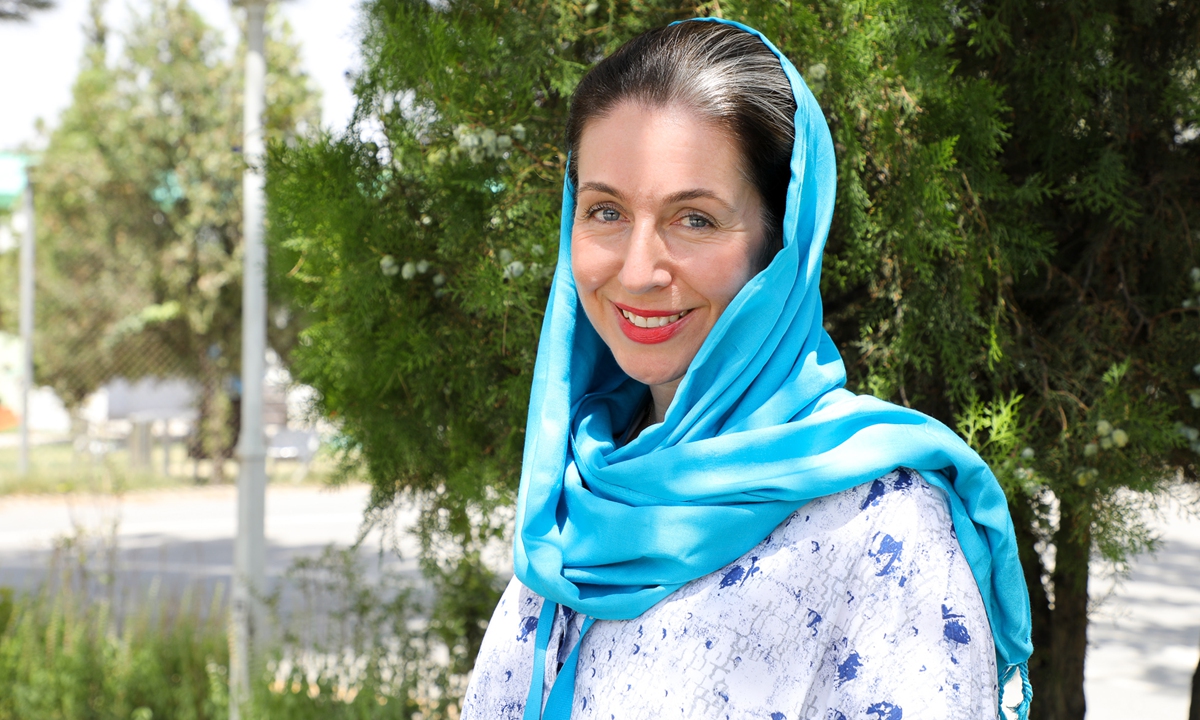
Samantha Mort, communications chief for UNICEF in Kabul
"Drought, rising food prices, displacement of the internal population, COVID-19, and preventable disease outbreaks are weakening the resilience of the most vulnerable people of Afghanistan. We are concerned about the multiplying effect of the imminent winter on Afghanistan's female and youngest citizens," Mort said.
She explained that Afghanistan is currently experiencing multiple impacts of drought, water, and food shortages, and the third wave of the COVID-19 epidemic. And because of the dramatic political changes in the last few weeks, the country is on the verge of economic collapse. The dramatic increase in food and commodity prices has made it nearly impossible for most disadvantaged people to secure their basic livelihoods.
UNICEF has also been concerned that the high degree of internal population displacement caused by the war has left women and children without access to basic healthcare.
"There are also outbreaks of polio and measles in Afghanistan. But what we are seeing is that donors in the international community are talking about pausing international aid that is threatening the whole health system across Afghanistan," she lamented, noting that UNICEF currently has a deficit of around $85 million to take them through to the end of the year. Over the last month, they have had to revise their work, scaling back programs until there is a formal government and the dust settles.
"But as an NGO with 65 years of experience in Afghanistan, we know clearly that UNICEF must remain here because Afghans are paying the highest price for a crisis that is not of their making," Mort said.
Currently, UNICEF remains committed to helping children in Afghanistan who are victims of atrocities and continues the program of water transportation to the communities most affected by the drought. Vaccinations continue, as well as programs on nutrition, treatment, and the measurement of malnourished children across the country.
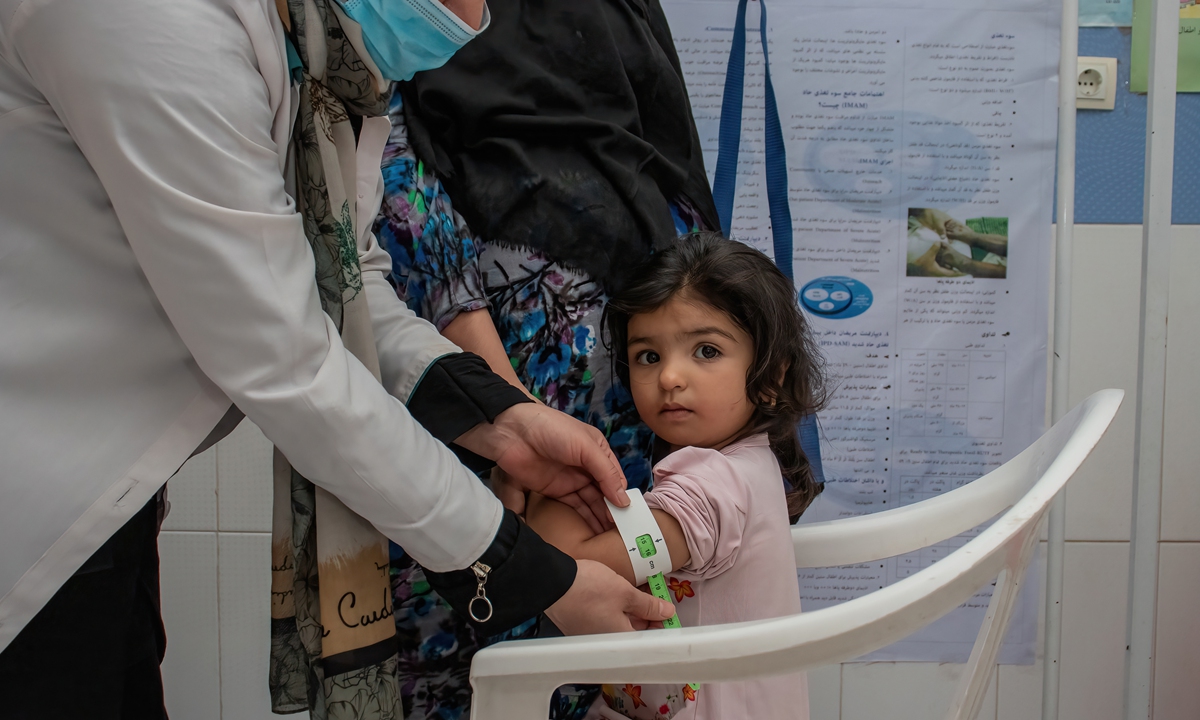
At Herat city's largest health center, UNICEF provides services on health and vaccination (incl. COVID-19) that continue in chaos after war. Photo: Courtesy of UNICEF
Mort noted that UNICEF has been working with a range of Afghan political forces, including the Taliban, to promote the rights of women and children.
In December 2020, UNICEF signed a work plan with the Taliban to expand access to education in areas back under their control, Mort mentioned, adding that they were eager to continue to build on that working relationship that they already have.
"A few weeks ago, our representative met the Taliban education commissioner to talk about the progress and future of education in Afghanistan. But, because there is no formal government yet, UNICEF has not had a meeting with the central leadership to establish our new working modalities. Once we have that, we will better understand how we are going to work together going forward," she explained.
Mort also pointed out that now, UNICEF, the Afghan population, and the international community, are all waiting to see if the Taliban's rhetoric about their commitment to girls' education and women's rights under Islamic law will turn into reality.
Mort said that there is a very inconsistent picture across the country. "For example, we saw that Taliban's health commissioner asked all hospitals and health clinics to open and all health workers, including female doctors, nurses, and administration workers, to come back to work. We also saw female students in the west of Afghanistan's Herat City have received a letter saying that they were encouraged to continue studying at university. However, we are also seeing some segregation of classes at primary schools and hearing stories of some female teachers being asked to stay at home."
UNICEF hoped that as soon as the formal government is formed, the Taliban will have some clear guidelines to put into practice, Mort said.
At the same time, she called on the international community to not leave the women and children of the country alone.
China took the lead in providing 200 million yuan ( $31 million) worth of food, winter supplies, vaccines, and other supplies to Afghanistan and called on the international community to exert more positive influence on the development and changes of the situation on the basis of respecting Afghanistan's sovereignty, independence, and territorial integrity. Mort have pointed out that it's important for countries to support the humanitarian effort financially, with supplies, and also advocate for peace and security in the country.
"What children need more than anything is peace and security. The children of Afghanistan need to be in school. They need to be building their future and they need to be contributing to a prosperous and productive Afghanistan. This is our common goal," she stressed.
